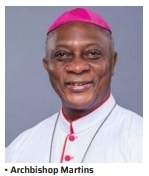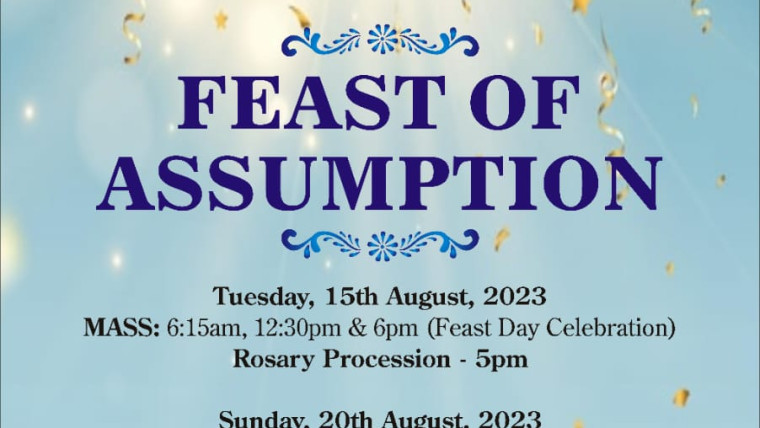- Insists wisdom of the heart cannot be sought from machines
- Warns on deepfakes
- Calls for ethical regulation of AI
By Neta Nwosu
His Holiness, Pope Francis has described the term ‘Intelligence’ in ‘Artificial Intelligence’ as misleading, stating categorically that wisdom of the heart cannot be sought from machines. With the rapid rise of Artificial Intelligence (AI), there has been a growing fear that machines will eventually surpass human intelligence. But the Holy Pontiff in his message for the 58th World Day of Social Communications, made it clear that, as much as AI may excel in intelligence, it can never replace human wisdom.
He wrote, “At this time in history, which risks becoming rich in technology and poor in humanity, our reflections must begin with the human heart. Only by adopting a spiritual way of viewing reality, only by recovering a wisdom of the heart, can we confront and interpret the newness of our time and rediscover the path to a fully human communication.
Citing the Bible, Pope Francis said, “The heart is seen as the place of freedom and decision-making. It symbolises integrity and unity, but it also engages our emotions, desires, dreams; it is, above all, the inward place of our encounter with God. Wisdom of the heart, then, is the virtue that enables us to integrate the whole and its parts, our decisions and their consequences, our nobility and our vulnerability, our past and our future, our individuality and our membership within a larger community.” The Holy Father stressed that AI cannot provide the uniquely human wisdom needed to promote the common good of people and society.
His message stipulated that though AI can process much more data at incredible speeds than human being can, but wisdom resides only in human being who alone can make sense of that data as well as guide the development and use of AI responsibly and ethically. Pope Francis message entitled, “Artificial Intelligence and the Wisdom of the Heart: Towards a Fully Human Communication,” read in part, “Such wisdom cannot be sought from machines. Although the term “artificial intelligence” has now supplanted the more correct term, “machine learning”, used in scientific literature, the very use of the word “intelligence” can prove misleading.
No doubt, machines possess a limitlessly greater capacity than human beings for storing and correlating data, but human beings alone are capable of making sense of that data. “It is not simply a matter of making machines appear more human, but of awakening humanity from the slumber induced by the illusion of omnipotence, based on the belief that we are completely autonomous and self-referential subjects, detached from all social bonds and forgetful of our status as creatures. “Human beings have always realised that they are not self-sufficient and have sought to overcome their vulnerability by employing every means possible.
From the earliest prehistoric artifacts, used as extensions of the arms, and then the media, used as an extension of the spoken word, we have now become capable of creating highly sophisticated machines that act as a support for thinking. Each of these instruments, however, can be abused by the primordial temptation to become like God without God (Gen. 3), that is, to want to grasp by our own effort what should instead be freely received as a gift from God, to be enjoyed in the company of others.” The Pope’s open message cautioned that “AI systems can be a source of “cognitive pollution”, a distortion of reality by partially or completely false narratives, believed and broadcast as if they were true.”
His Holiness, once a victim of AI-generated imagery said there is need to think of the long-standing problem of disinformation in the form of fake news, which today can employ “deepfakes”, namely the creation and diffusion of images that appear perfectly plausible but false, or of audio messages that use a person’s voice to say things which that person never said. Pope Francis’ message emphasised the need to develop a comprehensive set of protocols to govern the development and deployment of AI. It read in part, “Like every other product of human intelligence and skill, algorithms are not neutral. “
For this reason, there is a need to act preventively, by proposing models of ethical regulation, to forestall harmful, discriminatory and socially unjust effects of the use of systems of artificial intelligence and to combat their misuse for the purpose of reducing pluralism, polarising public opinion or creating forms of groupthink. “I once more appeal to the international community “to work together in order to adopt a binding international treaty that regulates the development and use of artificial intelligence in its many forms”. At the same time, as in every human context, regulation is, of itself, not sufficient.” The Pope’s call for a binding global treaty comes at a time of growing calls for AI governance and regulation. He called on everyone “To grow together, in humanity and as humanity. We are challenged to make a qualitative leap in order to become a complex, multi-ethnic, pluralistic, multi-religious and multicultural society. We are called to reflect carefully on the theoretical development and the practical use of these new instruments of communication and knowledge.”
The Holy Father warned, “The digital revolution can bring us greater freedom, but not if it imprisons us in models that nowadays are called “echo chambers”. In such cases, rather than increasing a pluralism of information, we risk finding ourselves adrift in a mire of confusion, prey to the interests of the market or of the powers that be.” Continuing, the Bishop of Rome cautioned, “It is unacceptable that the use of artificial intelligence should lead to groupthink, to a gathering of unverified data, to a collective editorial dereliction of duty. “The representation of reality in “big data”, however useful for the operation of machines, ultimately entails a substantial loss of the truth of things, hindering interpersonal communication and threatening our very humanity.
Information cannot be separated from living relationships. These involve the body and immersion in the real world; they involve correlating not only data but also human experiences; they require sensitivity to faces and facial expressions, compassion and sharing.” He cited the reporting of wars and the “parallel war” being waged through campaigns of disinformation. I think too of all those reporters who have been injured or killed in the line of duty in order to enable us to see what they themselves had seen. For only by such direct contact with the suffering children, women and men, can we come to appreciate the absurdity of wars.” Pope Francis acknowledged that “The use of artificial intelligence can make a positive contribution to the communications sector, provided it does not eliminate the role of journalism on the ground but serves to support it.”
He added, “Provided too that it values the professionalism of communication, making every communicator more aware of his or her responsibilities, and enables all people to be, as they should, discerning participants in the work of communication.” The Pope raised deeper questions that bother on mankind’s relationship with technology. “How do we safeguard professionalism and the dignity of workers in the fields of information and communication, together with that of users throughout the world? How do we ensure the interoperability of platforms? How do we enable businesses that develop digital platforms to accept their responsibilities with regard to content and advertising in the same way as editors of traditional communications media?
“How do we make more transparent the criteria guiding the operation of algorithms for indexing and de-indexing, and for search engines that are capable of celebrating or canceling persons and opinions, histories and cultures? How do we guarantee the transparency of information processing? How do we identify the paternity of writings and the traceability of sources concealed behind the shield of anonymity? “How do we make it clear whether an image or video is portraying an event or simulating it? How do we prevent sources from being reduced to one alone, thus fostering a single approach, developed on the basis of an algorithm? How instead do we promote an environment suitable for preserving pluralism and portraying the complexity of reality? How can we make sustainable a technology so powerful, costly and energy-consuming? And how can we make it accessible also to developing countries?

The world Catholic leader however noted that the answers to these questions are not pre-determined but dependent on people. He further wrote, “The answers we give to these and other questions will determine if artificial intelligence will end up creating new castes based on access to information and thus giving rise to new forms of exploitation and inequality. “Or, if it will lead to greater equality by promoting correct information and a greater awareness of the epochal change that we are experiencing by making it possible to acknowledge the many needs of individuals and of peoples within a well-structured and pluralistic network of information.
“If, on the one hand, we can glimpse the spectre of a new form of slavery, on the other, we can also envision a means of greater freedom; either the possibility that a select few can condition the thought of others, or that all people can participate in the development of thought. “The answer we give to these questions is not pre-determined; it depends on us. It is up to us to decide whether we will become fodder for algorithms or will nourish our hearts with that freedom without which we cannot grow in wisdom. “Such wisdom matures by using time wisely and embracing our vulnerabilities. It grows in the covenant between generations, between those who remember the past and who look ahead to the future. Only together can we increase our capacity for discernment and vigilance and for seeing things in the light of their fulfillment.
“Lest our humanity lose its bearings, let us seek the wisdom that was present before all things. It will help us also to put systems of artificial intelligence at the service of a fully human communication.” The World Communications Day is celebrated annually on the Solemnity of the Ascension of the Lord. This year’s edition falls on Sunday, May 12, 2024. The annual event was created by the Second Vatican Council to provide an annual message for the Church to its people and the rest of the world. Pope John Paul II, throughout his pontificate, made his annual letter for World Communications Day an important vehicle for commenting on the growing urgency in the mass media for responsibility, transparency and promotion of healthy values. Pope Francis, like his predecessors, has carried on John Paul’s legacy. Annually, the Pope’s Message for World Communications Day is released on January 24, the feast day of St. Francis de Sales, Patron Saint of Journalist.



